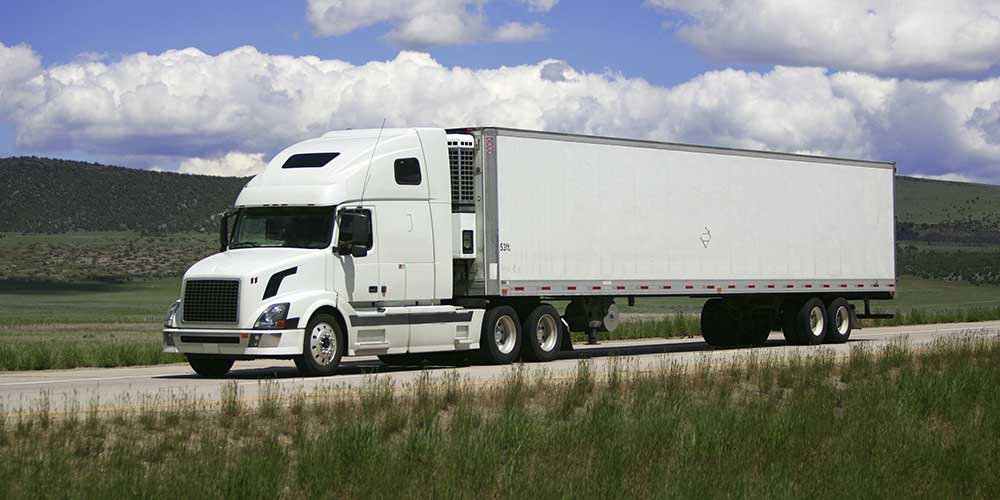Advanced Thermo King Truck Refrigeration Units for Trusted Distribution
Advanced Thermo King Truck Refrigeration Units for Trusted Distribution
Blog Article
Selecting the Right Transportation Refrigeration System for Your Fleet
Selecting an appropriate transportation refrigeration system for your fleet is an important choice that can significantly impact functional performance and item stability. It necessitates an extensive understanding of your specific refrigeration requirements, consisting of temperature level demands and delivery schedules.
Understanding Your Refrigeration Needs
When choosing a transport refrigeration system, understanding your particular refrigeration requirements is vital to making certain product quality and compliance with industry requirements. Numerous factors should be thought about to figure out one of the most ideal system for your procedure. These consist of the kind of items being moved, their temperature demands, and the duration of transit.
For perishable goods, such as fresh produce or pharmaceuticals, precise temperature control is critical. Understanding the temperature array needed for each and every item enables the choice of a system that can preserve those conditions regularly. Additionally, consider the frequency of deliveries and the distance took a trip; longer trips may necessitate systems with boosted insulation or back-up power choices to avoid temperature changes.

Moreover, the capacity of the refrigeration unit should align with your load dimension. By extensively assessing these aspects, you can guarantee that your selected transportation refrigeration system efficiently satisfies your operational needs and keeps item stability.
Kinds of Transport Refrigeration Systems
Picking the ideal type of transport refrigeration system is essential for ensuring the secure transportation of temperature-sensitive products. There are a number of systems offered, each developed to fulfill certain requirements and applications.
These systems are typically preferred for their effectiveness and reduced initial expenses. Another choice is the main refrigeration system, which serves several areas or cars from a solitary compressor unit.
Furthermore, there are self-supporting refrigeration units that incorporate the compressor and evaporator in one package. When space is limited, these systems are ideal for smaller automobiles or. For specialized applications, such as transporting pharmaceuticals or perishables, cryogenic refrigeration systems may be used, using fluid nitrogen or carbon dioxide to preserve ultra-low temperature levels.
Last but not least, hybrid refrigeration systems that combine diesel and electrical power are becoming increasingly preferred, using versatility in energy use and minimizing ecological influence. Recognizing these various types permits fleet operators to make educated choices customized to their particular operational demands.
Key Features to Take Into Consideration
Just how can one ensure that a transport refrigeration system meets all operational requirements? To achieve this, several essential functions have to be carefully evaluated. Firstly, temperature control is essential; systems ought to provide accurate temperature settings to accommodate numerous items, ranging from frozen products to disposable items.
Power performance is one more essential consideration, as it influences functional expenses. Search for systems that utilize innovative innovation, such as variable speed compressors, to maximize power usage without jeopardizing performance.
An additional function to evaluate is the reliability and durability of the tools. Solutions constructed from high-grade materials and designed for resilience versus harsh problems will certainly lower upkeep costs and downtime.
In addition, the simplicity of upkeep and accessibility of components can dramatically affect operational effectiveness (thermo king transport refrigeration). Attributes like modular styles or remote monitoring capacities can simplify solution processes
Last but not least, compatibility with existing fleet administration software program can improve monitoring and reporting processes. By concentrating on these vital functions, fleet drivers can ensure that their transport refrigeration systems not just meet present needs but likewise adjust to future demands.

Budgeting for Refrigeration Solutions
Assessing vital attributes of transportation refrigeration systems is just one component of guaranteeing operational effectiveness; budgeting for refrigeration remedies is similarly essential. A well-structured budget not just includes the initial acquisition rate however also takes into consideration long-lasting operational prices, including energy intake, maintenance, and potential repair work needs.
When establishing a spending plan, fleet supervisors ought to initially examine the total price of ownership (TCO) This consists of not only the procurement expenses yet likewise ongoing costs associated with sustain efficiency and the durability of the refrigeration devices. Selecting systems with greater energy effectiveness ratings might yield here are the findings considerable financial savings over time, mitigating ahead of time costs.
Additionally, fleet operators must make up prospective scalability. As organizations grow, the refrigeration needs might change, requiring upgrades or added units. Planning for these future expenditures can prevent monetary pressure.
Financing choices can additionally play an important duty in budgeting. Leasing, loans, or outright acquisitions each have distinctive financial ramifications, and comprehending these can aid in making an informed decision. Eventually, a thorough budget that considers both future and instant requirements makes sure that transport refrigeration systems contribute positively to the general functional performance of the fleet.
Upkeep and Assistance Options
In the realm of transport refrigeration systems, reliable upkeep and support choices are important for making certain optimal performance and longevity. Regular maintenance is necessary to avoid malfunctions and maintain the stability of temperature-sensitive freight. It is suggested to develop a regular examination timetable with certified service technicians that can do needed checks and repair services on refrigeration systems.
Assistance alternatives need to consist of a robust service agreement, covering both regular upkeep and emergency situation repair services. This guarantees that your fleet has access to prompt aid, decreasing downtime and keeping functional effectiveness. Numerous manufacturers offer thorough assistance packages that consist of training for your team, enabling them to perform standard troubleshooting and upkeep tasks.
Furthermore, making use of remote tracking technology can enhance your upkeep technique - thermo king transport refrigeration. These systems provide real-time information on temperature and efficiency, permitting proactive procedures before concerns intensify. Buying training and innovation not only improves your fleet's reliability yet likewise expands the life expectancy of your refrigeration systems
Inevitably, a calculated approach to upkeep and support will safeguard your investment and ensure that your transport refrigeration systems operate at peak effectiveness, providing constant outcomes for your organization.

Final Thought
In verdict, picking the proper transportation refrigeration system for a fleet requires a complete examination of certain refrigeration requirements, system types, and crucial attributes. Focusing on functional effectiveness, energy intake, and upkeep factors to consider is important for guaranteeing reliability. Additionally, mindful budgeting and preparation for future scalability will contribute to the lasting success of the refrigeration strategy. Inevitably, an educated decision will boost product integrity and maximize general logistics operations within the fleet.
Selecting an ideal transport refrigeration system for your fleet is a critical choice that can considerably influence operational performance and product stability.When selecting a transport refrigeration system, recognizing your particular refrigeration see demands is critical to making certain product top quality and compliance with market standards. By completely assessing these aspects, you can ensure that your selected transportation refrigeration system properly fulfills your functional requirements and preserves product integrity.
Ultimately, a comprehensive budget that thinks about both future and instant demands ensures that transportation refrigeration systems add positively to the overall operational performance of the fleet.
In conclusion, selecting the suitable transportation refrigeration system for a fleet demands a complete examination of particular refrigeration visit site needs, system types, and necessary attributes.
Report this page